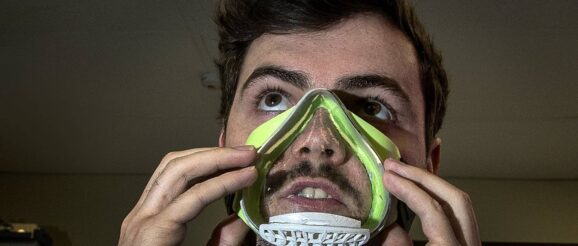Mā Innovation creates friendlier fask mask | Stuff.co.nz

New face masks designed to be more effective for frontline medical workers and more friendly to both people and the environment should soon be available to the public.
Mā Innovations, a company launched by Massey University staff, is working on a new face mask, which has a two-way filtration system and a clear front so the wearer’s face can be seen.
The Mā mask has been designed to be long-lasting, with replaceable N95 filters to reduce waste compared with single-use masks.
Mā Innovations was founded by Sean Rasmussen, the technical services manager at Massey’s school of food and advanced technology, and wife Aida, a physics teacher at Waitakere College. They were supported by Massey staff.
Sean Rasmussen said the company was finalising the design and in the next few weeks a final prototype would be ready, then production could start.
The mask is reusable, but the filter is thrown away after a day or two and Rasmussen wants to make the filter fully biodegradable.
An Australian company will produce the masks and Rasmussen said it would be able to make 40,000 a month.
He said the mask would be cost effective so it wasn’t just private health care service providers that could afford it.
“One of the big things we’ve done from the start was we’re going to develop a high-end product, but we needed to do it in a way that we can do bring the costs down, so it needs a low margin.”
The mask is designed so people can see expression and emotion on the wearer’s face. He said even a smile could make a difference.
“I’ve got two young daughters and one of my daughters has spent some time in hospital.
“When a doctor comes up to her in a mask she’s terrified and it’s not just the case for children.”
The company is trying to raise money through crowdfunding and Rasmussen said if this product was successful it could develop others to help vulnerable communities.
The company is working on others, but there is still work to be done on the mask and making it more sustainable.
Rasmussen got the idea earlier in the year when he was 3D-printing masks for health workers when New Zealand was in lockdown.
He started hearing about the challenges for doctors and nurses wearing uncomfortable masks for long periods, and that the masks made communication hard.
They also had environmental concerns about single-use masks.
Rasmussen worked with robotics professor Johan Potgeiter and dean of enterprise Gavin Clark to go from idea to business in four months.
